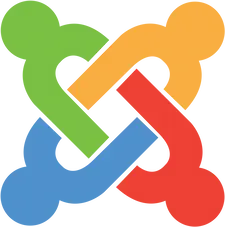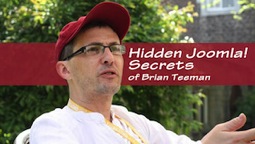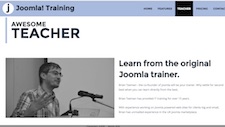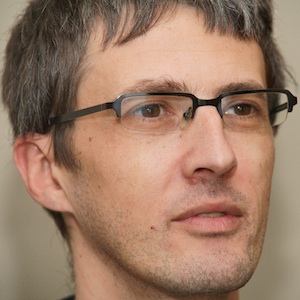Open source has never simply been about code. It’s about people and how they communicate, collaborate, make decisions, disagree productively, and ultimately work toward something bigger than any single contributor.
After nearly two decades of watching Joomla grow, reorganise, and reinvent itself, one truth stands out:
Open source succeeds when the ecosystem around the code is healthy.
Communication Is Transparent and Active
Silence is the enemy of collaboration. Open source projects thrive when conversations happen in the open, not hidden in private chats or back rooms.
This principle is baked into Joomla’s DNA. The project was literally born out of a demand for transparency during the Mambo fork, setting a precedent that discussions should be visible to all. From the early days of public forums and mailing lists to today’s GitHub issues, public meetings, and minuted team calls, Joomla has always worked best when everyone can see the “why” behind decisions—not just the “what.”
When communication is open:
- New contributors can follow along and learn organically.
- Decisions feel inclusive, not mysterious.
- Trust builds naturally.
Transparency isn’t just good etiquette; it’s how a community stays healthy.
Clear Governance, Expectations, and Documentation Guide the Way
Governance isn’t about bureaucracy. It’s about providing clarity.
Joomla has learned this through experience. Its evolving leadership structures, from the original Core Team to today's team-based model, are all attempts to answer a simple question: How do we organise hundreds of volunteers so they don’t trip over each other?
Documentation plays the same role. Joomla’s docs site has long served as the unwritten mentor for thousands of developers, site builders, and curious newcomers. It sets expectations, reduces confusion, and helps people help themselves.
Good governance and documentation:
- reduce friction,
- prevent decision bottlenecks,
- and allow people to focus on contributing instead of decoding process.
In open source, clarity is a kindness. Joomla is at its best when its processes are clearly signposted.
Contributors Feel Empowered to Collaborate and Share Responsibility
Joomla has always attracted people who simply “get on with it.” One of the project's most enduring cultural norms is:
“Those who show up make the decisions.”
That ethos has empowered countless volunteers to:
- write release notes when nobody else had time,
- test nightly builds to keep releases stable,
- translate the CMS into dozens of languages,
- propose UX improvements long before they were fashionable.
Some of Joomla’s most important changes happened because someone quietly began working on something the project needed, no committee approval, no ceremony, just initiative.
When people feel empowered, they contribute. When they feel they need permission, they fade away.
A Shared Vision Keeps the Project Moving Forward
Every long-lived open source project struggles with “vision drift,” and Joomla has seen its share. But at key moments, shared vision has pulled the community together.
Examples include:
- the adoption of MVC architecture,
- the launch of the Joomla Framework,
- the early adoption of the responsive UI Bootstrap in Joomla 3
- the accessibility-first approach in Joomla 4,
- and the performance and modernisation push in Joomla 5.
These weren’t just technical changes. They were declarations of what Joomla values: accessibility, standards, backward compatibility, and modern development practices.
When Joomla has a clear direction, the community rallies around it. When the vision fogs over, progress slows and discussions scatter.
Shared vision is the compass that keeps everyone rowing in the same direction.
Low Barriers to Entry Invite New Contributors In
The best open source projects continually renew themselves by making it easy for new people to join.
Consider:
- Pizza, Bugs & Fun, which turned debugging into a worldwide social event
- JUGs (Joomla User Groups), giving beginners a safe space to learn
- Clear GitHub contribution workflows, reducing new-contributor intimidation
- Onboarding sprints and informal mentorship, (Google Summer of Code and Joomla Academy) helping turn users into contributors
Joomla has always been strongest when it welcomes beginners, not when it caters only to experts. Every long-term contributor was once a confused newcomer who took a chance.
Keeping the door open keeps the community alive.
Decisions Are Made Openly and Based on Merit
A healthy open source project makes decisions out in the open, based on arguments, evidence, and needs—not on corporate influence or personal popularity.
Joomla has repeatedly demonstrated this:
- through public RFCs for major feature proposals,
- open election processes for leadership roles,
- transparent debates about controversial ideas,
- and a willingness to revisit choices when better information emerges.
You may not agree with every decision, and nobody ever does, but you can see how and why the conclusion was reached. That transparency builds trust far more effectively than any announcement ever could.
Open decision-making is the backbone of sustainable governance.
Joomla Shows That Open Source Is Human Before It Is Technical
Joomla’s real strength has never been its code (though the codebase has evolved impressively). Its strength is the global network of volunteers who:
- build,
- test,
- translate,
- document,
- debate,
- design,
- teach,
- organise,
- and advocate.
The Joomla community is living proof that open source works best when the people behind it feel respected, informed, and empowered.
When we nurture the people, the project thrives. The code follows naturally.
The tools, licenses, and repositories matter but they’re not what make a project succeed. Communities succeed when they communicate well, respect each other’s time, and make it easy for new people to join.
Open source is a human endeavour long before it is a technical one. When we nurture the people, the code takes care of itself.
In the End: Open Source Works Best When People Do






